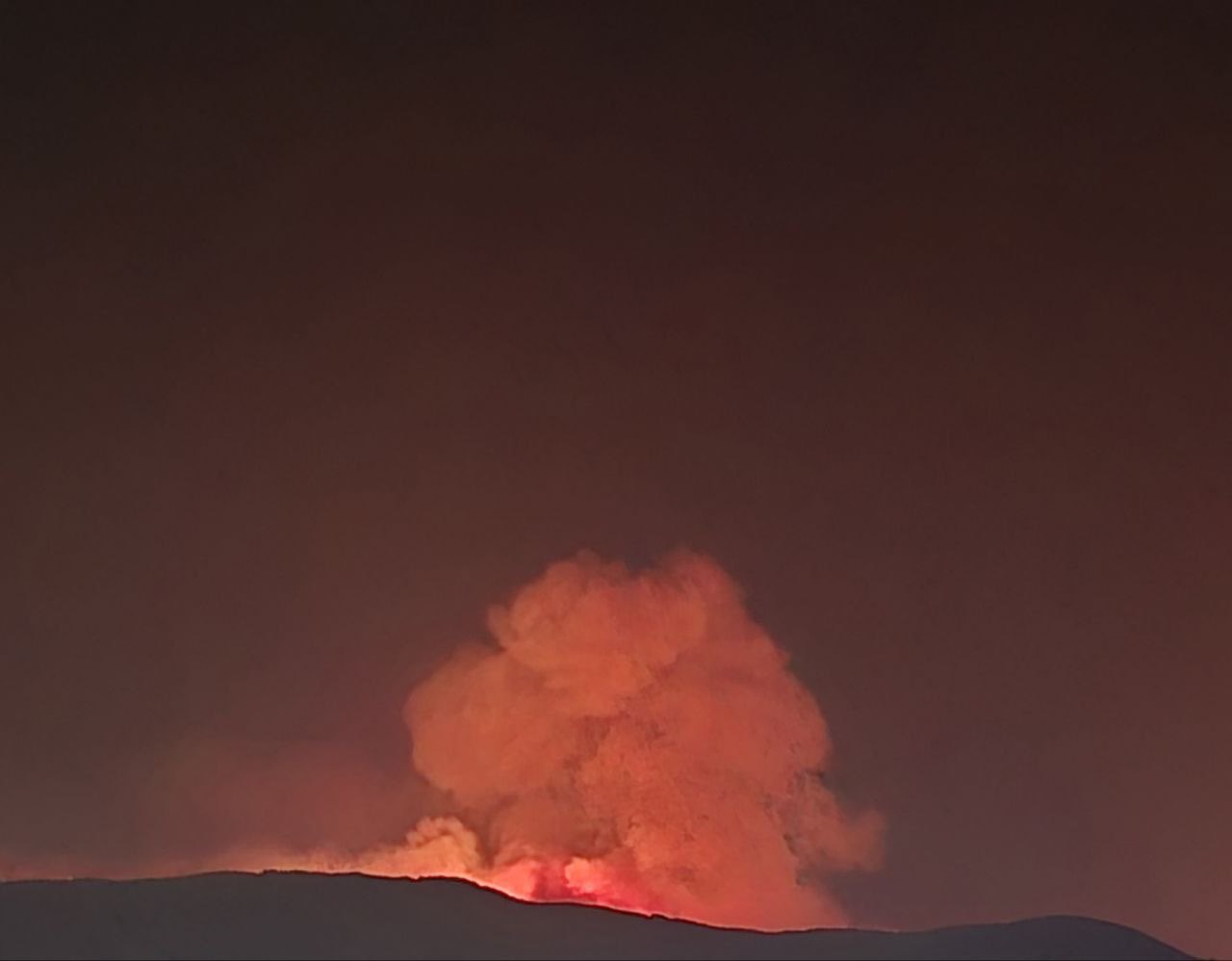


Barran Press
The direct military confrontation between Iran and Israel intensified today, marking the eighth consecutive day of hostilities with a significant escalation in missile exchanges. Tehran issued stark warnings to both the United States and Israel, threatening a broader response and "new surprises" if Israeli attacks persist, sparking concerns of a more widespread regional conflict.
Iranian President Masoud Pezeshkian adopted a more aggressive stance, vowing "harsher responses" should Israeli assaults continue. "Our responses will make the enemy regret its actions," Pezeshkian stated, asserting that only an unconditional cessation of aggression and guarantees to halt what he termed "Zionist adventures" could end the war.
Echoing this hardline position, Ibrahim Azizi, head of the Iranian Parliament's National Security Committee, delivered a severe warning to Washington. Azizi hinted at a "strategic surprise" if the U.S. chose to intervene alongside Israel, adding that American military involvement would "accelerate their military and security expulsion from the region."
The Iranian Ministry of Defense also indicated preparedness for a prolonged conflict, stating its "armed forces are equipped to fight for several years" and that military installations remain operational despite repeated attacks.
Diplomacy Stalls as Iran Rejects U.S. Talks
On the diplomatic front, Iranian Foreign Minister Abbas Araqchi firmly rejected any U.S. attempts at rapprochement. Araqchi declared that Iran "will not negotiate with Washington" as long as what he called Israeli aggression continues, branding the U.S. a "partner in crime."
Araqchi confirmed that planned nuclear talks in Geneva with the European Troika (UK, France, Germany) would remain strictly limited to the nuclear file and certain regional issues, emphatically ruling out any discussion of Iran's missile capabilities. "We will not discuss our defensive capabilities, and everyone knows they are to protect our lands," he asserted.
Despite the escalating regional conflict, a new round of talks on Iran's nuclear program began in Geneva, Switzerland. Foreign ministers from Iran and the three European nations (Britain, France, Germany) are participating, alongside European Union Foreign Policy Chief Kaja Kallas. These discussions unfold against a backdrop of surging regional tensions and swift developments regarding nuclear sanctions on Tehran. According to the semi-official Tasnim news agency, Iranian Deputy Foreign Minister Abbas Araqchi had previously stated the meeting was requested by European foreign ministers to address bilateral, regional, and nuclear agreement-related issues.
In a significant military development, Iran's Revolutionary Guard Corps (IRGC) reported the death of three of its members in an Israeli airstrike in East Azerbaijan province, northwestern Iran. This incident was part of a series of overnight Israeli strikes, described as the most intense since the current escalation began. The Israeli military confirmed it had targeted dozens of military sites deep within Iranian territory.
Iranian media outlets reported that the Israeli strikes hit several provinces, including Tehran, Gilan, Golestan, and East Azerbaijan. Three explosions were heard in eastern Tehran, and a military unit in the Bostan Abad area was reportedly targeted, leading to the deaths of the three IRGC members.
Tehran experienced a security alert this morning, with air defense systems activated after what local media reported was an Israeli drone strike on a residential building. The IRGC commander also announced that air defenses had shot down two small drones near the Tehran oil refinery.
Separately, Iran's emergency management agency disclosed that five hospitals were damaged by Israeli airstrikes over the past week, while the Ministry of Health confirmed that six ambulances and a health center had been targeted since the onset of the attacks.
Israel Claims Significant Damage to Iranian Missile Capabilities
Chief of Staff of the Israeli Army, Lieutenant General Eyal Zamir, claimed that Israeli forces have destroyed approximately half of Iran's missile launch platforms. Zamir lauded recent Israeli airstrikes inside Iran as a "powerful and surprising opening" that yielded "exceptional results."
In a video message, Zamir indicated that Israeli attacks struck strategic sites, including surface-to-air missile batteries and missile launch platforms—some reportedly destroyed moments before use. He also claimed direct hits on Iran's top military leadership and facilities linked to its nuclear program. Zamir added that the Israeli Air Force is conducting aerial operations "at the maximum range and highest intensity in the history of the air force."
Zamir connected Israel's operations in Iran to the 53 remaining hostages held by Hamas since October 7, 2023, emphasizing that "bringing the hostages home is a moral and national imperative, and the Israeli army is working tirelessly to achieve that."
Iran Retaliates with New Missile Barrage on Israel
In retaliation, Iran launched a new barrage of missiles targeting northern, central, and southern Israel. Local Israeli authorities confirmed that at least 27 people were injured, with three in critical condition, including a 16-year-old boy hit by shrapnel.
Air raid sirens blared across various parts of Israel, as the Israeli army warned residents to immediately seek shelter "until further notice." The army stated its air force was intercepting and destroying the incoming missiles.
The IRGC announced the execution of the seventeenth phase of "Operation True Promise 3," stating it targeted a series of vital sites within "occupied Palestinian territories." These included military centers, defensive facilities, command and control centers, companies supporting Israeli military activities, and the Nevatim and Hatzerim air bases.
In an official statement, the IRGC clarified that this operation was in response to "ongoing aggression" against the residents of Gaza and the peoples of Lebanon and Yemen, and to counter what it called a "imposed war" on Iran. The statement underscored that the intensive missile attacks on major Israeli cities like Tel Aviv, Haifa, and Beersheba demonstrate the advanced offensive capabilities of Iran's ballistic missile system.